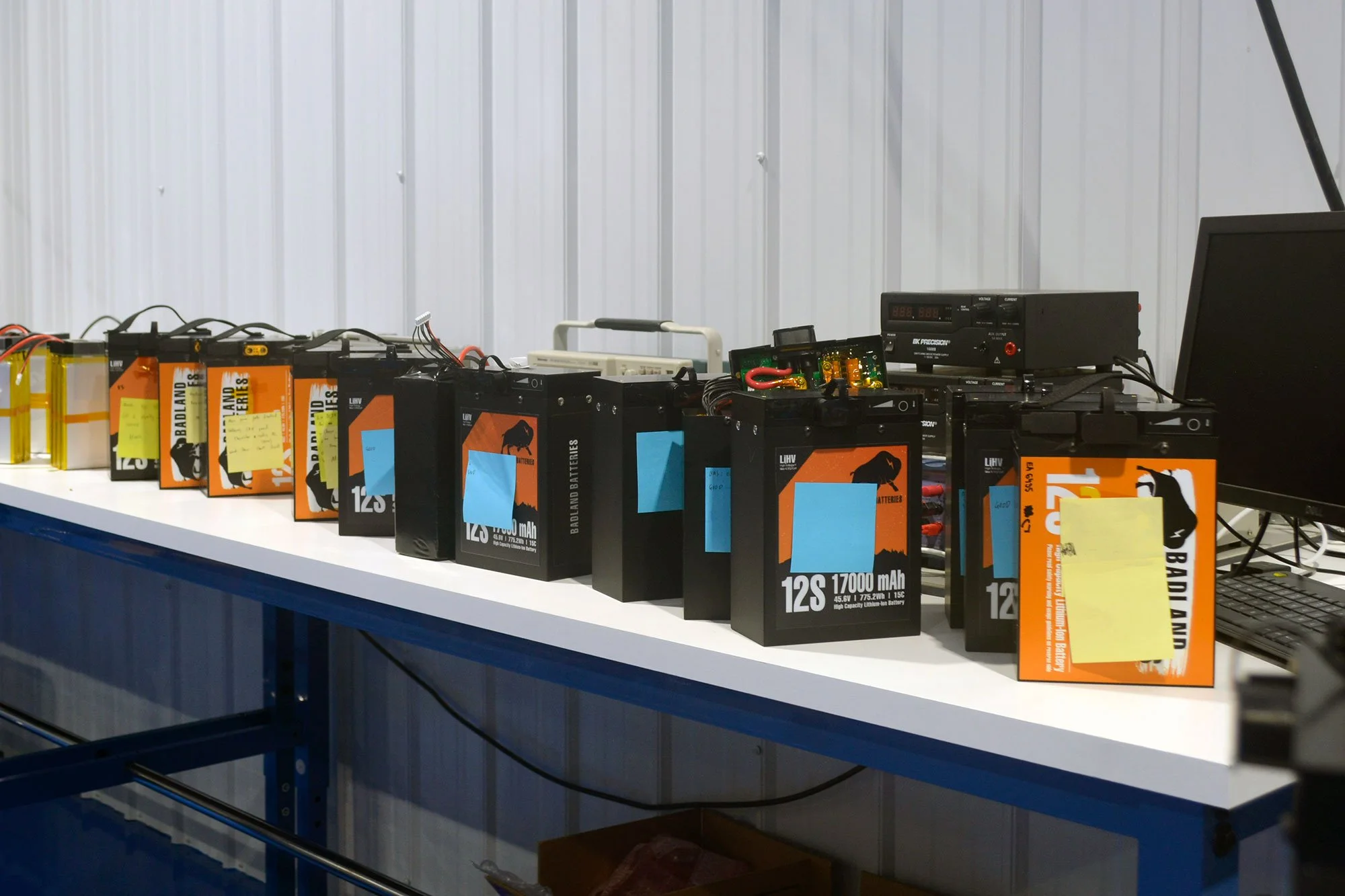Why is UN38.3 Certification Important?
Badland Batteries puts every battery through the rigorous testing process
UN38.3 refers to Section 38.3 of the UN Manual of Tests and Criteria, issued by the United Nations, that sets the global safety standard for international battery shipping. Every lithium cell and finished battery pack must pass testing that simulates unusual failure modes and transportation stressors. UN38.3 defines this set of tests that simulate those stresses so transportation of lithium batteries can be done safely and reliably.
However, UN38.3 is a self-certified standard, meaning that the manufacturer is responsible for ensuring their product passes the testing requirements. Not every company uses a third-party to properly test products, which can be a lengthy and rigorous process. The unfortunate reality to this is that battery shipment can become unreliable or worse, unsafe, with certain manufacturers.
Badland Batteries does not cut corners in this area. Every Badland Batteries model undergoes UN38.3 testing through a certified, independent third-party lab. Every test was successfully passed multiple times so customers have peace of mind knowing Badland Batteries will arrive safely and mission ready.
To complete certification, a series of eight tests must be completed.
Altitude simulation: Exposes samples to low pressure (such as that found during air transport) to check for leakage, venting, rupture or capacity loss.
Thermal test: Cycling between high and low temperatures to reveal thermal instability or mechanical failures.
Vibration: Simulates vibration during transport to reveal internal shorting, loosened parts or case failures.
Shock: Mechanical shock pulses to test mechanical integrity and protection of internal connections.
External short circuit: Intentionally shorting the battery’s external terminals under controlled conditions to show it will not catch fire or explode. (Every Badland Batteries pack has a fuse for short circuit protection.)
Impact/crush: Cells perform an impact test and larger batteries perform a crush test to simulate damage from drops or heavy impact.
Overcharge: Intentionally overcharging to evaluate whether safe venting or catastrophic failure occurs. This test is only conducted when overcharge protection exists in the battery design.
Forced discharge: For certain chemistries, discharging at a rate beyond design to check for overheating, smoking, fire or rupture.
Typically each test is done in succession and the sample will receive a pass or fail grade for each individual test. To receive full UN38.3 certification, samples must pass every test. Once all tests have been completed and passed, a test report is provided and must be provided or referenced to when shipping lithium batteries.

